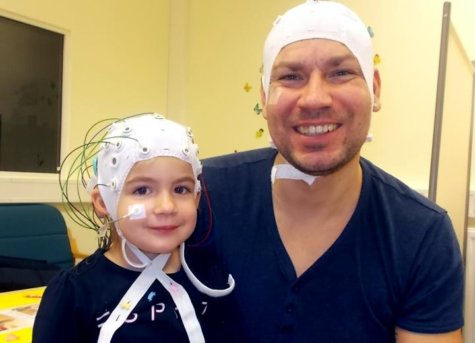LEIPZIG, Germany — Modern technology can not only allow some deaf children to hear sound, but a recent study indicates that with the help of a cochlear implant, they can even learn words faster than children who can hear.
Researchers at the Max Planck Institute for Human Cognitive and Brain Sciences and the University Medical Centre Dresden wanted more insight into the process of learning language in deaf and hearing children. More specifically, they wanted to know which processes specifically affect when deaf and hearing children start to learn language.

Cochlear implants — tiny devices that are surgically set within the inner ear — receive sound waves, convert them to electrical signals, and send these signals directly to the auditory nerve. This technology revolutionized hearing therapy for deaf children. Scientists and physicians had thought that children with cochlear implants reach the same level of language skill as hearing children much later. Previous research showed children with cochlear implants took longer to develop proficiency at key stages in learning their first language.
But the study, headed by Niki Vavatzanidis, found new results. The research team recruited 32 children with cochlear implants in both ears and tested their ability to recognize words after 12, 18, and 24 months from implantation. Researchers monitored the participants’ brain activity using electroencephalography. The children were shown images of objects which were named either correctly or incorrectly, and a signal picked up by the EEG indicated when they registered an incorrect word. This process confirmed that the children had learned the correct word.
“We observed that when deaf children get their implants, they learn words faster than those with normal hearing. Consequently, they build up certain word pools faster,” says Vavatzanidis in a news release.
A typical child needs about fourteen months to accurately recognize when known objects are named incorrectly. But for deaf children with the cochlear implant, the feat only took them twelve months. The reason for this new finding could be because the children with implants are older when they’re able to listen to spoken language, compared to a child who picks up on sound while still in the womb.
“It is not just the memory, but also the broader knowledge about their surroundings that is more formed. They already know about objects in their environment and have accumulated non-linguistic semantic categories,” explains Vavatzanidis.
Adds Angela D. Friederici, study leader and head of the institute: “Children with cochlear implants could help us understand the general processes of language acquisition and determine which single steps are age-dependent. We now know that age does not affect how fast children learn words. On the contrary, they seem to catch up even if they were previously disadvantaged.”
The study was published January 17, 2018 in the journal Scientific Reports.
